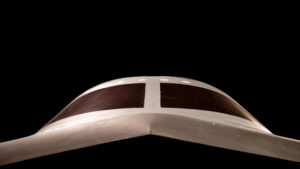Israel is set to export its vaunted Arrow-3—an interceptor for exo-atmospheric ballistic threats—to Germany as the largest-ever Israeli defense export, a $4.3 billion sale.
Berlin will train on the defense system this summer to prepare for Arrow-3’s arrival later in the year. Meanwhile, Germany recently sat at the table with other EU member states weighing possible reprisals, including arms embargoes and sanctions, against Israel over humanitarian concerns in the Gaza Strip. Germany’s vote at a recent EU gathering helped stall and then shelve sanctions.
The result of the debates and Germany’s purchase highlight Israel’s growing global reach outside the U.S. through its advanced defense technology, now central to Europe’s security calculus.
Though the EU’s decision shocked ministers, Israel’s strategic leverage complicates efforts to influence the state’s response to the Oct. 7 attacks launched by Hamas-led terrorists. Brussels may stall on sanctions or embargoes, but the Arrow-3 shipment—along with other European buys—signals Israel’s maturing autonomy as it depends less on Washington’s and Europe’s goodwill.
Israeli tech will defend European space
Arrow-3 destroys warheads in space well before they start their final dive, with most debris burning during atmospheric reentry rather than raining onto the cities below. Codeveloped by the Israel Missile Defense Organization and U.S. Missile Defense Agency and assembled by Israel Aerospace Industries (IAI) and Boeing Co., open-source estimates place Arrow-3’s flight range at up to 1,491 miles. Its speed remains classified, though as a hypersonic missile, it exceeds Mach 5 speeds, or 3,836 mph.
The first of Arrow-3’s kills was a November 2023 interception of a Houthi ballistic missile headed for the Israeli city of Eilat, a demonstration of its operational credibility about six weeks after Germany signed the defense deal.
During the 12-day war in June against Iran, Israeli Arrow-3 and Arrow-2 batteries worked with a U.S. Terminal High Altitude Area Defense battery to achieve an 86 percent intercept rate against Iranian ballistic missiles, according to estimated Israel Defense Forces figures cited by Haaretz. The rates suggest that the Arrow interceptors handled roughly 80 percent of the shots.
Put simply, because the Israeli defense system fills much of the hypersonic gap in NATO’s Sky Shield initiative—a project that aims to build European air defense with ground-based anti-ballistic missile capability—it helps explain Germany’s vote to stall sanctions and the concluding EU decision not to enforce reprisals.
While the Arrow-3 will defend European space, Germany also is negotiating with Israel for its silent underwater scout.
Europe wants Israel’s underwater drone
Israel’s Blue Whale, an unmanned underwater vehicle, is next on Berlin’s shopping list. Unlike Arrow-3, the autonomous system was an IAI-led product without any U.S. industrial partner.
Germany’s naval-tech company, Atlas Elektronik, integrated mission modules into the Israeli system, but it remains independent of Washington’s technology pipeline. Moreover, Greece signed for its own Blue Whale purchase in May 2025 without a U.S. firm involved.
Blue Whale signals that Arrow-3 isn’t a one-off purchase for Germany. Coupled with Greece’s interest, European states are beginning to solidify a pattern of Israeli tech adoption. As its exports grow, so will Israel’s ability to remain independent of foreign political constraints.
The future of Israeli relations
Israel’s leverage isn’t purely European. At home, Rep. Marjorie Taylor Greene, R-Georgia, witnessed a sweeping House rejection (422 to 6) on her bid to strip $500 million from joint U.S.-Israel missile-defense programs. Progressives and hard-right Republicans alike voted against the bid.
On both sides of the Atlantic, efforts to curb Israeli defenses keep fizzling. Increasingly, Israel is taking center stage in defense innovation. With every supporting move and export, Israel showcases its continued ability to reach transatlantic influence.
While Israeli American relations are tethered by security interdependence, foreign military financing and intelligence symbiosis, Israel has been diversifying its partners. Jerusalem flirts with outside powers, like China and India for trade, partly to hedge against over-reliance on Washington.
More recently, major U.S. allies like France, the United Kingdom and Canada plan to recognize Palestine as a state, mostly political threats responding to humanitarian concerns in Gaza. However, these moves subtly hint at Israeli leverage on the international stage; rather than imposing the costly sanctions or arms embargoes, Western states are instead turning to political and rhetorical support of Palestinian sovereignty.
Europe can’t sanction its own defense needs, and Capitol Hill won’t walk away from Israeli missile shields and its value to U.S. missile defense needs. Israel is now gradually scaling from a regional tech exporter to a global security power, reducing its need to defer to Washington or Brussels.
The West will likely continue its complicated relationship with Israel, but Jerusalem’s growing presence, strategic leverage and political resilience may give the U.S. an even more complex ally to monitor in the Middle East.







